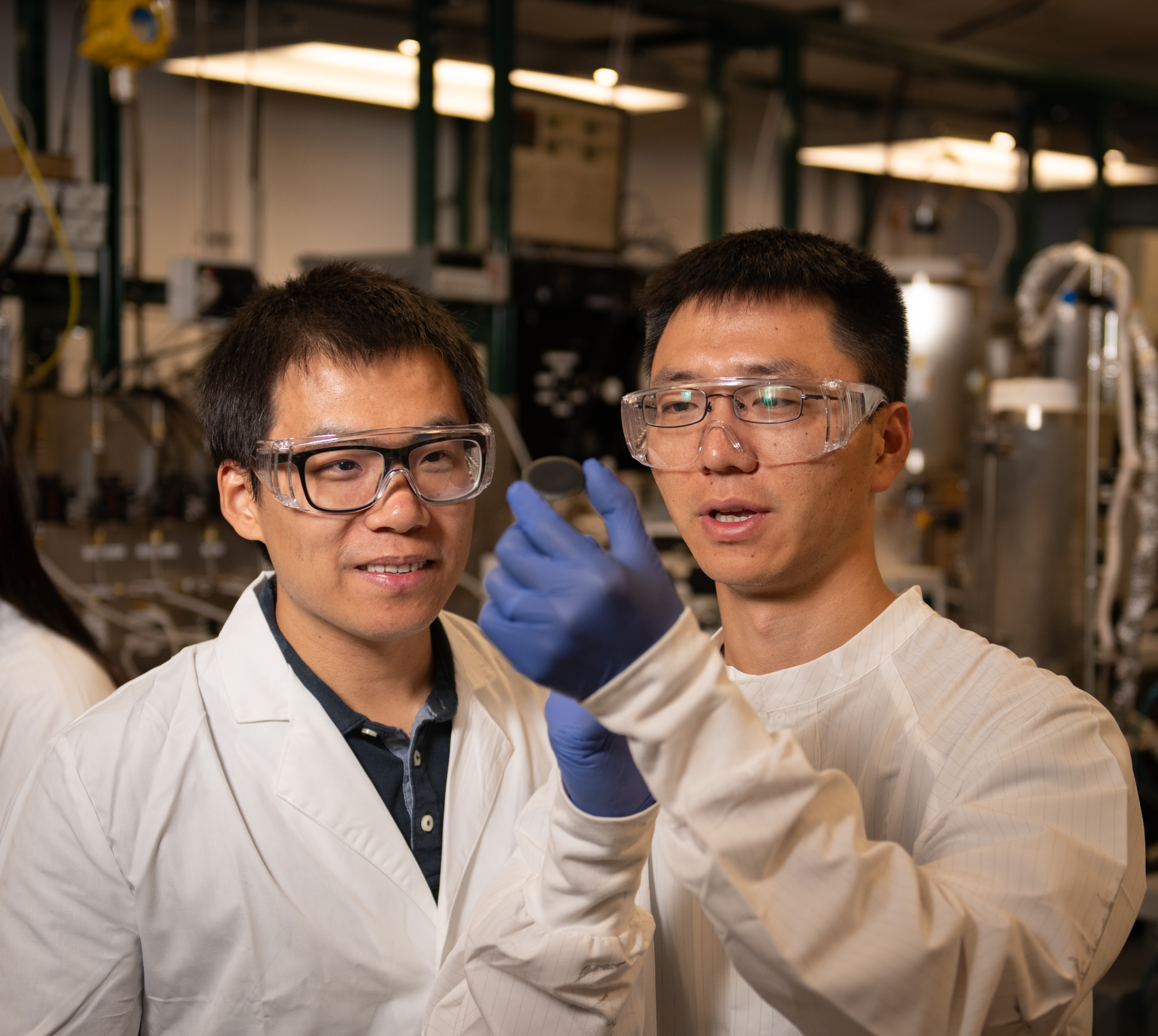September 8, 2023
K-State researchers develop materials to lower operating temperatures of fuel cell and hydrogen production technology

Chuancheng Duan, assistant professor in the Tim Taylor Department of Chemical Engineering, and his team of researchers in the Materials Research Laboratory for Sustainable Energy and collaborators have developed a breakthrough in the race to develop commercially scalable and high-performing protonic ceramic electrochemical cells for efficient power generation and low-cost hydrogen production.
The research, recently reported in Nature Energy, focuses on protonic ceramic electrochemical cells, or PCECs, that can operate at temperatures below 450 degrees Celsius. Current iterations that operate above 500 degrees Celsius are not seen as commercially viable, while these lower-temperature cells being developed at K-State could utilize lower-cost materials and components that would make them practical options for commercial use.
"Our PCECs can even operate at 275 degrees Celsius, which has never been achieved in this field," said doctoral candidate Fan Liu, the first author of the paper.
Duan and his team — with funding from Nissan Motor Co. Ltd., the U.S. Department of Energy and NASA — have developed a pair of approaches to reduce electrolyte and electrode resistance, which allows the electrochemical cell to run effectively at a lower temperature. The work has resulted in promising performance and stability in both fuel cell and electrolysis modes at temperatures below 450 degrees Celsius, which at scale could produce commercialized large-scale power generation and low-cost hydrogen production.
"We expect the PCECs operating at reduced temperatures could broaden its applications, for example, PCECs can potentially power electric vehicles using a variety of fuels," Duan said.
Both clean hydrogen and sustainable power are essential for the U.S. plan to reduce carbon emissions. The Department of Energy has established its Hydrogen Shot goal of reducing the cost of clean hydrogen by 80% to $1 per 1 kilogram in one decade, also known as 1 1 1.
"We believe the high-performing PCECs we have demonstrated at K-State can certainly facilitate its scaleup and commercialization for producing hydrogen at a reduced cost, which can help the DOE achieve its 1 1 1 goal," Duan said.
K-State researchers are now working with DOE national labs and industrial partners to scale up this technology and prototype PCEC stacks, allowing the transfer of PCEC technology from the lab to the market.
Bin Liu, associate professor of chemical engineering, and graduate students, Hao Deng, Di Chen and Liyang Fang also contributed to this work.
